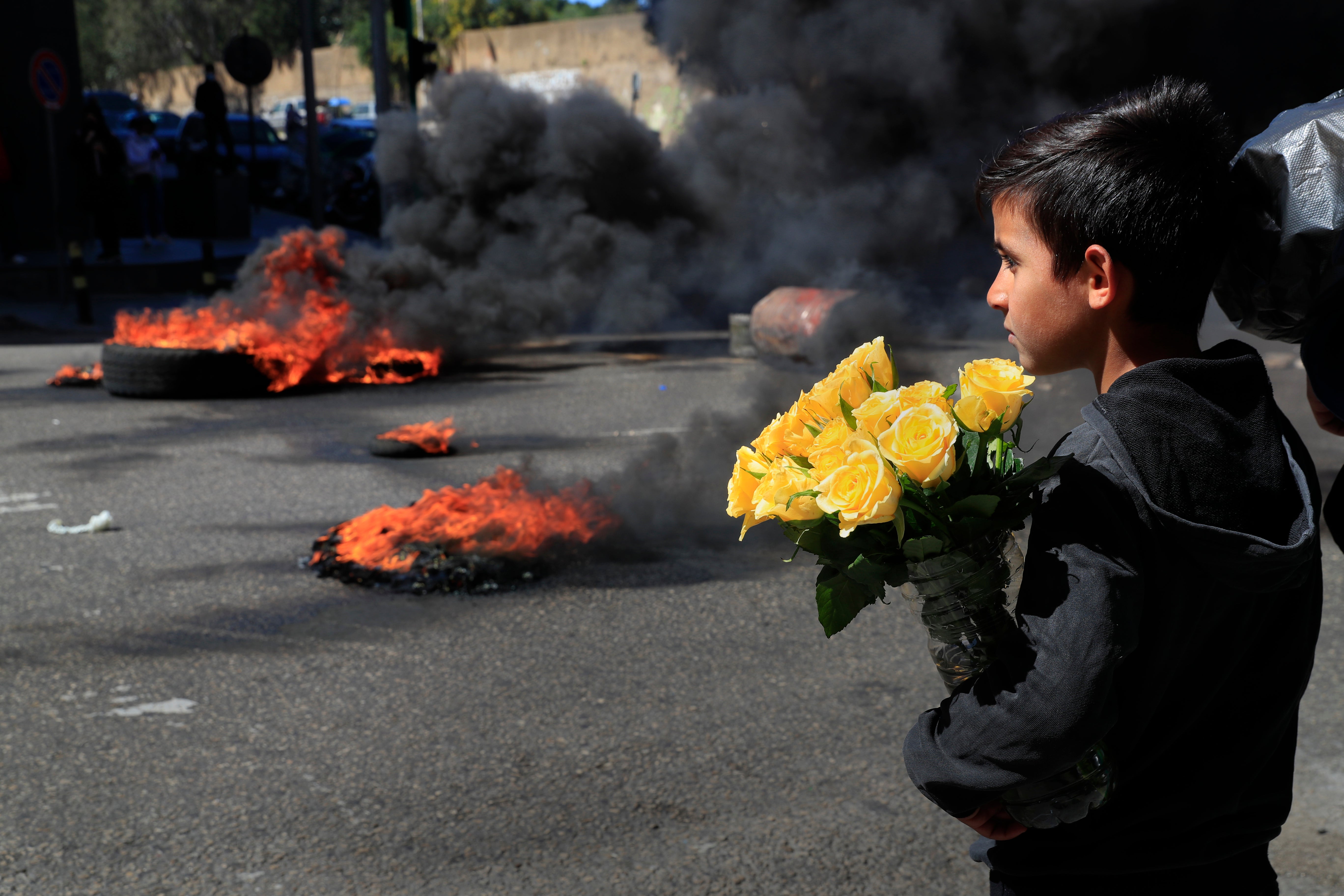'We are hungry': Lebanese protest worsening economic crisis
Protesters have taken to the streets in the Lebanese capital, blocking roads with burning tires and garbage containers as the Lebanese pound continued to plummet to all-time lows against the dollar

Your support helps us to tell the story
From reproductive rights to climate change to Big Tech, The Independent is on the ground when the story is developing. Whether it's investigating the financials of Elon Musk's pro-Trump PAC or producing our latest documentary, 'The A Word', which shines a light on the American women fighting for reproductive rights, we know how important it is to parse out the facts from the messaging.
At such a critical moment in US history, we need reporters on the ground. Your donation allows us to keep sending journalists to speak to both sides of the story.
The Independent is trusted by Americans across the entire political spectrum. And unlike many other quality news outlets, we choose not to lock Americans out of our reporting and analysis with paywalls. We believe quality journalism should be available to everyone, paid for by those who can afford it.
Your support makes all the difference.Outraged protesters returned to the streets of Lebanon's capital Tuesday, blocking roads with burning tires and garbage containers as the currency continued to plummet to all-time lows and the country’s financial crisis intensified.
The protests resumed — although in smaller numbers — following several days of relative calm as the Lebanese pound continued its slide, plunging to a new low of 15,000 to the U.S. dollar on the black market.
“Where are the people? Come down, we are hungry, we are fed up!” yelled Ahmad Shuman, a protester frustrated at the small number of people taking part in demonstrations.
In another Beirut neighborhood, small groups of young men, some driving scooters, pelted shop windows with stones and asked them to close. It was not clear why they were pressuring them to close.
The currency has lost 90% of its value since October 2019, when anti-government protests erupted, including more than 25% in the past few weeks alone. Senior politicians, meanwhile, have refused to work together to form a new government that would implement the reforms needed to extract the nation from the crisis.
The currency crash has pushed more than half the population into poverty as prices soar. It has also depleted foreign reserves, raising concerns that Lebanon's central bank will end subsidies of some basic commodities, including fuel in coming weeks.
The crisis is posing the gravest threat to Lebanon’s stability since the 1975-90 civil war. France’s foreign minister warned last week that Lebanon is running out of time before total collapse, putting the blame squarely on the country’s leaders whose refusal to come together to form a government has exacerbated the crisis.
U.S. State Department deputy spokeswoman Jalina Porter, speaking to reporters in Washington on Monday, said the U.S. is concerned about developments in Lebanon and the apparent inaction of the country’s leadership in the face of multiple ongoing crises.
“Lebanon’s political leaders need to put aside their partisan brinkmanship and form a government that will quickly implement critical and long-needed reforms, restore investor confidence, and rescue the country’s economy,” she said.
Lebanon’s government resigned in August following a massive explosion at Beirut’s port that killed 211 people, wounded more than 6,000 and damaged entire neighborhoods in the capital.
Disagreements between President Michel Aoun who is an ally of the militant group Hezbollah and Prime Minister-designate Saad Hariri, who is opposed to the group, have so far delayed the formation of a Cabinet. Hariri was chosen for the post in October.